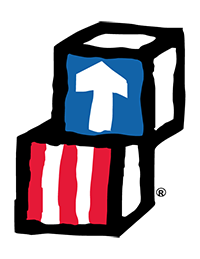1 - Pre-FEM Academy Participation Feedback Form_6-01-2022
Formative Data Collections for ACF Program Support
1 - Pre-FEM Academy Participation Feedback Form_6-01-2022
OMB: 0970-0531

Family Economic Mobility (FEM) Training and Technical Assistance Feedback

PAPERWORK REDUCTION ACT OF 1995 (Pub. L. 104-13) STATEMENT OF PUBLIC BURDEN: The purpose of this information collection is to understand participants’ current and anticipated needs that the Office of Head Start can address in future offerings of training and technical assistance provided by the National Center on Parent, Family, and Community Engagement. Public reporting burden for this collection of information is estimated to average 10 minutes per response, including the time for reviewing instructions, gathering and maintaining the data needed, and reviewing the collection of information. This is a voluntary collection of information. An agency may not conduct or sponsor, and a person is not required to respond to, a collection of information subject to the requirements of the Paperwork Reduction Act of 1995, unless it displays a currently valid OMB control number. The OMB # is 0970-0531 and the expiration date is XX/XX/202X. If you have any comments on this collection of information, please contact [contact info to be added at event]
Pre-FEM Academy Participation Feedback Form
Thank you for participating in the Family Economic Mobility (FEM) Academy. To help ensure the quality of our services, we ask that you complete the following feedback survey. This brief survey is voluntary, and you do not have to answer any questions. Your responses will be kept private, and results will be summarized in a way that cannot identify any individual. To further protect your privacy please refrain from including personally identifiable information and open in-depth responses. The survey takes about ten minutes to complete.
Please note that some survey items use a multi-point scale. If you are taking the survey on your phone, you may have to scroll down to see the entire scale. When you finish, click the submit button at the bottom of the final page to record your responses. You are free to move throughout the survey and change responses until you click submit. You will then be taken to a screen that indicates your responses have been submitted.
Demographics
Why do we ask for demographic information? These questions are about the ways you describe yourself. This information is important because we want our training and technical assistance (TTA) to be useful, meaningful, and respectful for everyone. We will use this information to help improve future TTA to be sure it is more responsive to diverse groups of people.
What program setting do you work with? (check all that apply)
<<Head Start, Early Head Start, Early Head Start – Childcare Partnership (EHS/CCP), Child Care, Other>>
What is your role? (multiple choice)
<<Teacher/teacher aide/teacher assistant, Family childcare provider, Home Visitor, Family Services Manager/Family Services Coordinator, Family Support Worker/Family Services Worker/Family Advocate/Family Engagement Specialist/Family Educator, Education/Child Development Manager, Disabilities Manager/staff, Nutrition Manager/staff, Health Manager/staff, Mental Health Manager/ Services Staff, Director/Administrator, Coach, Parent, Family Member, TA provider, State and Tribal Staff, Federal Staff, Other>>
How many years have you been working in the Human Services field?
<< Less than 1 year, 1 to 5 years, 6 to 10 years, 11 to15, 16 to 19, 20 or more years>>
Which categories describe you? (race/ethnicity/check all that apply)
<<American Indian or Alaska Native/Asian/Black or African American/Hispanic, Latino or Spanish Origin/Middle Eastern or North African/Native Hawaiian or other Pacific Islander/White/A race, ethnicity, or origin not listed here, please specify/I prefer not to answer.>>
Building Family Economic Mobility (BFEM)
The next set of questions focuses on building family economic mobility (BFEM). BFEM refers to partnering with families on their goals for financial capability, education, and employment through the process of setting program goals and developing strategies.
Reflect on the concept of family economic mobility. Provide your definition of family economic mobility as it relates to your work with families. Please limit your response to two or three sentences.
<<Open-Ended>>
My current level of knowledge around family economic mobility topics.
<<Likert Scale: Not at all knowledgeable, Somewhat knowledgeable, Moderately knowledgeable, Highly knowledgeable, Expert >>
Please provide up to three examples of specific family economic mobility topics you are familiar with.
<<Open-Ended>>
List up to three family economic mobility topics would you like to gain more knowledge on?
<<Open-Ended>>
List up to three economic mobility goals you work on with families (i.e., securing employment, building savings, or addressing debt)? Please be specific.
<<Open-Ended>>
Rate your organization’s level of readiness to implement strategies and activities related to family economic mobility.
<<Likert Scale: Not ready, Somewhat ready, Neutral, Moderately ready, Very ready, Fully ready>>
Rate your organization’s level of prioritization around general strategies and activities related to family economic mobility.
<<Likert Scale: Not a priority, Low priority, Moderate Priority, High Priority, Essential Priority>>
My level of confidence in conversations with families around FEM.
<<Likert Scale: No confidence, Somewhat confident, Moderately confident, Highly confident, Fully confident >>
I utilize FEM tools and resources in my current work with families
<<Likert Scale: Never, Rarely, Occasionally, Sometimes, Frequently, Usually, Every time>>
Describe two or three tools and/or resources you use in your conversations with families.
<<Open-Ended>>
The next set of questions focuses on community partnerships. Community partnerships build collaborative relationships with organizations in the community to support and advance families’ economic mobility and education and employment goals through financial capability services or programs that teach financial literacy. Examples of community partnerships include Workforce Development Boards or Community Action Agencies.
I believe community partnerships are important in my work with families around economic mobility.
<<Likert Scale: Strongly Disagree, Disagree, Somewhat Disagree, Neither Agree nor Disagree, Somewhat Agree, Agree, Strongly Agree>>
What community partnerships do you currently work with to assist families with economic mobility goals and supports?
<<Open-Ended>>
What are the barriers (if any) that prevent you from engaging with community partners?
<<Open-Ended>>
Describe what you hope to learn from the FEM Academy in-person event.
<<Open-Ended>>
SURVEY NOTE: Max 13 items. Likert Scale Items in the Pre-FEM Academy Participation Feedback Form may be substituted into the Post-FEM Academy Participation Feedback Form.
| File Type | application/vnd.openxmlformats-officedocument.wordprocessingml.document |
| Author | Iheoma U. Iruka |
| File Modified | 0000-00-00 |
| File Created | 2023-09-12 |
© 2026 OMB.report | Privacy Policy